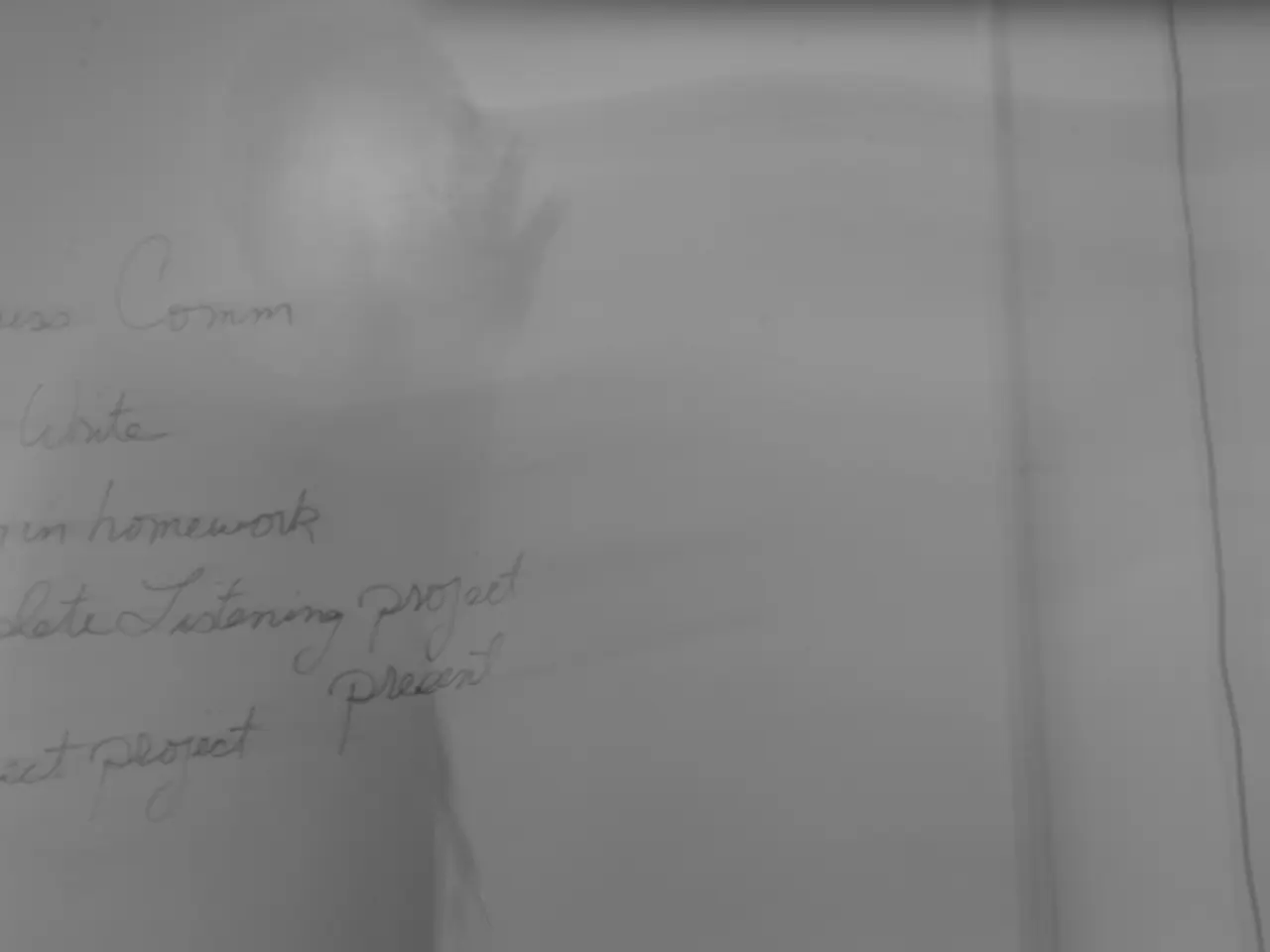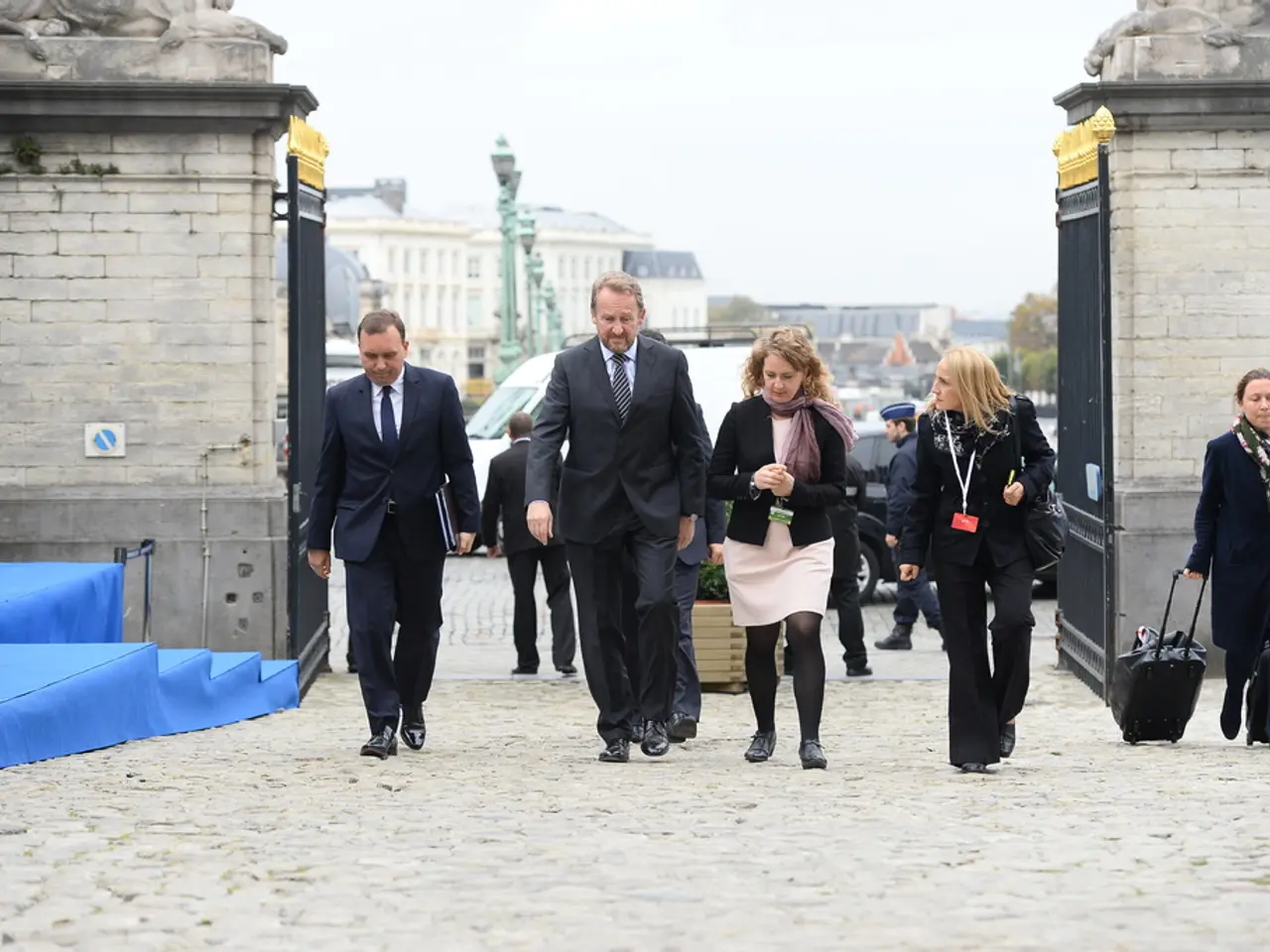Three German producers persist in transitioning to sustainable steel production
Tough as Nails: Germany's Steel Giants Plow Ahead With Climate-Friendly Production
Unlike their competitor ArcelorMittal, German steel giants Thyssenkrupp Steel, Salzgitter, and the Stahl-Holding-Saar (SHS) refuse to back down from their commitment to climate-friendly steel production. "We're sticking to our guns and completing the first direct reduction plant in Duisburg," a spokesperson from Thyssenkrupp Steel told the press, despite the project teetering on the brink of financial feasibility.
Salzgitter, the third-largest German steel company, remains resolute in replacing its coal-fired blast furnaces with gas and hydrogen-powered plants. "We're committed to our path of transforming steel production into a CO2-reduced one," a Salzgitter representative confirmed. ArcelorMittal, on the other hand, has opted out of switching to coal-free steel production at its Bremen and Eisenhüttenstadt plants, citing the unprofitability of CO2-reduced steel production. ArcelorMittal's decision forgoes 1.3 billion euros in approved funding for this ambitious project.
Full Steam Ahead for Green Steel Productions
Construction on Thyssenkrupp Steel's green steel plant is already underway, with the federal government and the state of NRW ponying up around two billion euros for the cause. The plant aims to replace two blast furnaces with hydrogen-based technology by 2030.
Salzgitter's conversion to green steel is also in motion, with the first phase already well advanced since the end of 2023. The company plans to switch entirely to green steel by 2033, investing over two billion euros, with one billion euros coming from federal and state funding.
ArcelorMittal's decision to postpone its conversion in Bremen and Eisenhüttenstadt has raised eyebrows among industry experts. The Salzgitter spokesperson asserts that framework conditions for transformation projects need to be improved. "We need to intensify the development of the hydrogen economy and bring electricity prices to a competitive level," they said.
In the Saarland, a direct reduction plant and electric arc furnaces are expected to break ground. The direct reduction plant will supply the Dillingen and Volklingen sites with iron pellets, from which CO2-reduced steel will be produced in electric arc furnaces with the addition of scrap. The renovation to "green steel production" is projected to run about 4.6 billion euros, with the federal government and the Saarland contributing 2.6 billion euros. The plant is set to launch in 2028/29.
IG Metall Slams ArcelorMittal's Step Backwards
Union IG Metall lambasted ArcelorMittal's decision, deeming it short-sighted, economically incorrect, and reckless, not only for employment but also for broader societal implications. "This project is vital for thousands of jobs in Bremen and Eisenhüttenstadt. The employees are on board, politics is providing billions in funding, and electricity prices are heading in the right direction. The only ones faltering are ArcelorMittal's executives," criticized Jürgen Kerner, the second chairman of the union.
The transition to a carbon-neutral steel industry is a long-term venture spanning a century. The employees understand the stakes, politics is providing the funds, and energy prices are trending positively. It's ArcelorMittal's management that's losing its nerve. The federal government must, therefore, call an emergency summit for the steel industry to discuss and address this critical situation.
According to the enrichment data, these German steelmakers' projects form part of Germany's broader goal of decarbonizing the steel industry, with the federal government providing subsidies of €6.9 billion for steel production aligned with climate targets. ArcelorMittal's exit poses concerns over market feasibility and the conversion of existing blast furnaces to hydrogen or electric steel production. Electric steel plants, while more climate-friendly, face European Union state aid restrictions, limiting subsidies. Labour unions and industry experts emphasize the need to improve market conditions, spur the development of the hydrogen economy, and keep electricity prices competitive to ensure the long-term viability of these ambitious projects.
- The German steel companies, Thyssenkrupp Steel, Salzgitter, and Stahl-Holding-Saar (SHS), are raising the stakes in climate-friendly steel production by investing in energy-efficient technologies, such as direct reduction plants and hydrogen-powered steel plants.
- In the environmental science sector, factors like finance and energy play crucial roles as these companies transition towards a CO2-reduced steel industry, with the aim to minimize climate change in the industry.
- Germany's steel giants' ventures to create "green steel" align with the country's broader environmental-science goals, receiving subsidies from the federal government to meet climate targets.
- The controversy surrounding ArcelorMittal's reluctance to commit to climate-friendly steel production in Bremen and Eisenhüttenstadt has sparked discussions about improving framework conditions for transformation projects in the finance and business sectors, with a focus on the development of the hydrogen economy and competitive electricity prices.




